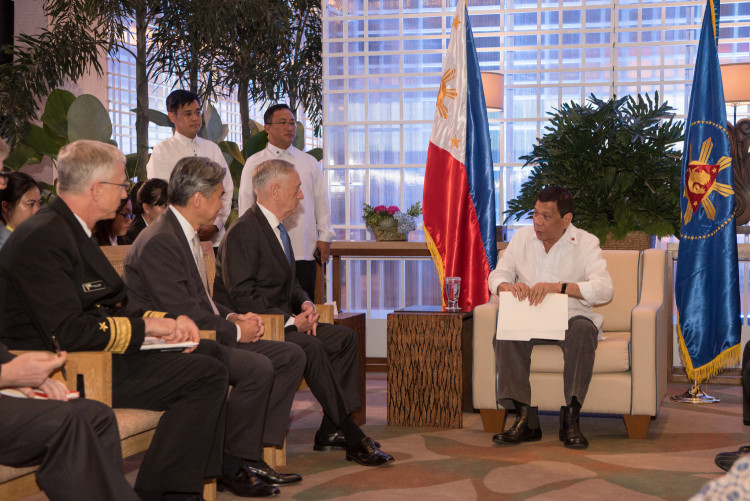Despite incessant criticisms from the opposition, the Duterte government has opted to take a more "conciliatory" move with China as brewing issues of who gets to own the South China Sea continues.
On Sunday, presidential spokesperson Harry Roque said that Malacañang shares the public sentiment that the Philippines should assert its sovereign rights and territorial claims on the aforementioned maritime area.
Just this week, Social Weather Stations (SWS) - a prominent public-opinion polling institution based in the Philippines, revealed in their survey that close to 90 percent or 9 out of 10 Filipinos think it is important that the country should regain its control of the islands and the surrounding bodies of water in the South China Sea which is being referred to nationally as the West Philippine Sea.
On the other hand, a few percentages of the respondents think that the sovereign claim issue is unimportant.
"We are one with our people in seeking to assert our sovereign rights and territorial claims in the West Philippine Sea," Roque said during the press conference.
The spokesperson however clarified that the Duterte administration will not emulate the confrontational approach of the preceding government in addressing this matter of territorial significance. Rather, President Rodrigo Duterte will take on a "conciliatory tack" and establish a "friendly dialogue" with China.
"Having seen how the confrontational approach of the previous administration only spurred greater militarization, we have shifted to a conciliatory tack and friendly dialogue with China by employing a bilateral consultation mechanism to resolve issues while we build up our capability to monitor and defend our maritime interests," Roque added.
Hermogenes Esperon Jr., the National Security Adviser to the President, told reporters that the Philippines is currently incapable of engaging an armed conflict with China, should the issue escalates on that level. Thus, it is best for Malacañang to take on a softer route.
Philippine Chief Justice Antonio Carpio, however, believed that there should never be an option to go to war, in the first place. For Carpio, "using international law" is the strongest suit the Philippines has at its disposal.
The territory in question lies between the Karimata and Malacca Straits, up to the Strait of Taiwan, and has a total area of around 3,500,000 square kilometers.
Two years ago today, the Philippines, which was then under the presidency of Benigno Aquino III, took the dispute to the Permanent Court of Arbitration in Hague. The ruling placed favor on the Philippines over China's historical claims of the maritime area, which was considered invalid by the international court.






